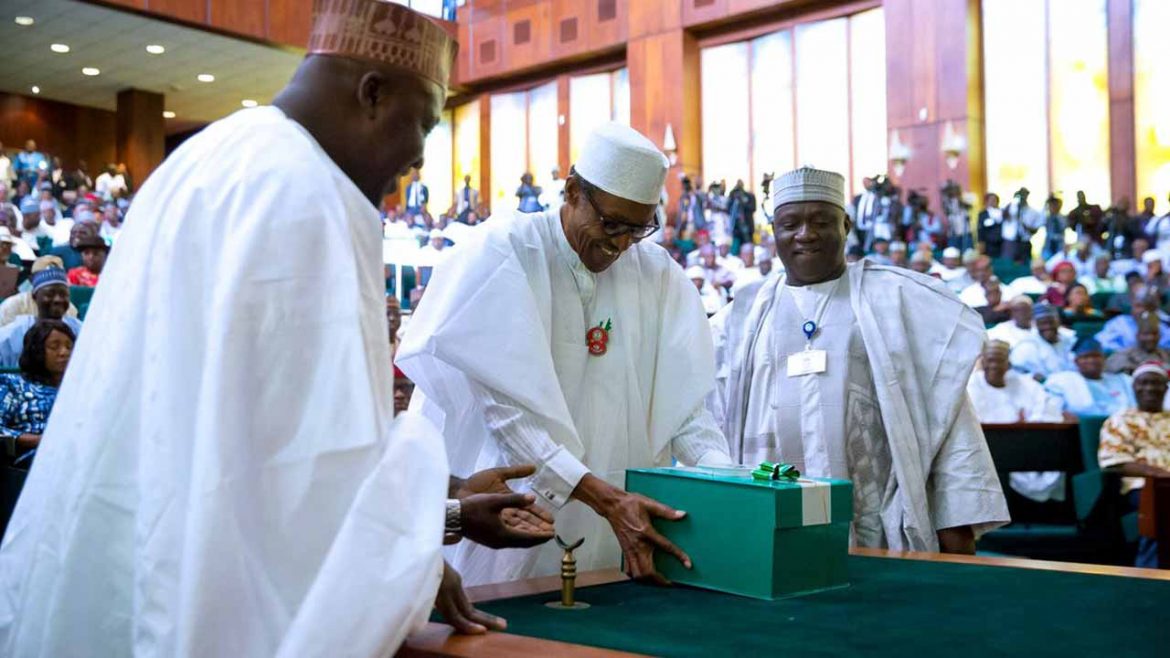887
By Uwa Eghomeka
My worries about the several months of delay in passing the 2018 Budget of
Consolidation were abated as the Senate finally approved it on Wednesday,
16th May. But my heart turned to jelly as I read the breakdown of the
budget.
I became fearful, not only because of the fiscal deficit of
N1,954,464,993,775 and a deficit to GDP of -1.73 per cent, and the feeble
plan for revenue generation, but because of Nigeria’s usual way of
‘shifting the deckchairs on the Titanic’. It is becoming increasingly
disgusting how the leadership of the country pays less attention to core
indices of national development such as education, health, human
empowerment, security, but keeps the tabs on those areas that do not
directly impact the lot of the citizens.
Of the total amount passed by the Senate – N9,120,334,988,225, N2.873
trillion was budgeted for capital expenditure. The Federal ministry of
power, works and housing got the highest allocation of N682.309 billion,
followed by transportation which received N251.420 billion; N157.715
billion for defence; N149.198 billion for agriculture and rural
development; N147.200 billion for water resources and N102.907 billion for
education while N150 billion was allotted to capital special intervention
programme. The breakdown also showed that the National Assembly got N139.5
billion and the National Judicial Council got N110 billion.
While we thank the senate for increasing the budgetary allocation for
education from the N61.73 billion proposed by the executive to N102.907,
the amount is without doubt meagre considering the crucial role of
education in the development of any people and country. Till date, no
government in Nigeria has ever raised the allocation for education to 20%
as recommended by the United Nations Educational, Scientific and Cultural
Organization (UNESCO). Sadly, there has been a consistent decline in the
value the government has placed on education since the beginning of
democratic rule.
Although the Second National Development Plan (1970–74) raised the
allocation to 13.5%, it fell to 7.5% in the Third National Development
Plan (1975–1980). Again, it jumped to 17.3% in the Fourth National
Development Plan (1981–85). However, it has not gone higher than 13.5%
since 1990 except in 1997 when education was given 17.5%.
Speaking at the Abubakar Tafawa Balewa Stadium, Bauchi, President
Muhammadu Buhari said, “Now, look at the farmers/herdsmen’s clashes in the
northern part of this country. I have been telling people that if I had
not gone to school, I would not have gone into the military and where I
come from since my cows are finished; maybe, I would have been involved in
this fight.
“You should strive hard and be educated, get the education that will
benefit you and the society, it is not compulsory that government will
give you what to do.”
In other words, Buhari himself acknowledged the role of education in the
transformation of the mind, patriotism and national peace. Yet, he
allocated just a meagre 7% of the total proposed budget for the sector.
Meanwhile, highlighting the poor state of education in most commonwealth
countries in an op-ed, Jakaya Kikwete and Ngozi Okonjo-Iweala, a former
Minister of Finance in the country, write, “The situation is particularly
worrisome in Nigeria, where nearly nine million primary-school-age
children are not enrolled, and millions more – especially girls – are
denied access to secondary education. Educational opportunities are also
highly unevenly distributed between the richest and poorest Commonwealth
countries, while gender discrimination plagues many states.
“If current trends continue, by the year 2030 – the deadline for meeting
the 17 United Nations Sustainable Development Goals – more than 70% of
children in Commonwealth countries will be failing reading and math. This
would represent more than half of the total number of young people
expected to lack the skills needed to succeed in the twenty-first-century
job market.”
Understanding the elevated position of education in attaining national
peace and development, Okonjo-Iweala as Finance Minister in 2015 allotted
the lion’s share to education. Of the total N4.493 trillion approved
fiscal expenditure in 2015, education received the highest sum of
N392,363,784,654. This is an example of a leadership that knows the place
of education, making it a priority for the holistic growth and development
of the human capital and, ultimately, national output.
In conclusion, Aliko Dangote, speaking about International Finance
Facility for Education (IFFEd) and the importance of education said, “As
an industrialist, inclusive and quality education opens the door to
development and growth.” Therefore, Nigeria must rise to the challenge and
become more proactive and innovative in education financing.
Uwa Eghomeka is a teacher and budding writer who resides in the ancient
city of Benin.



